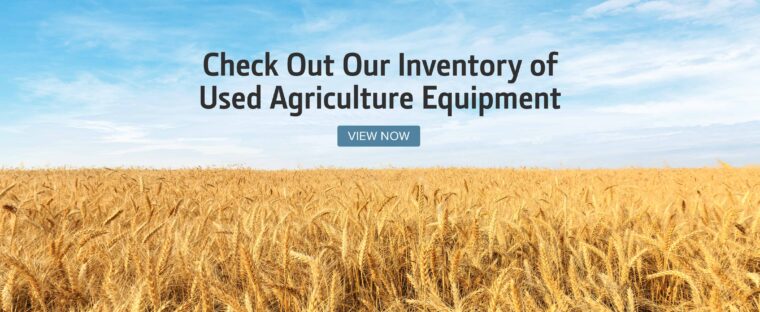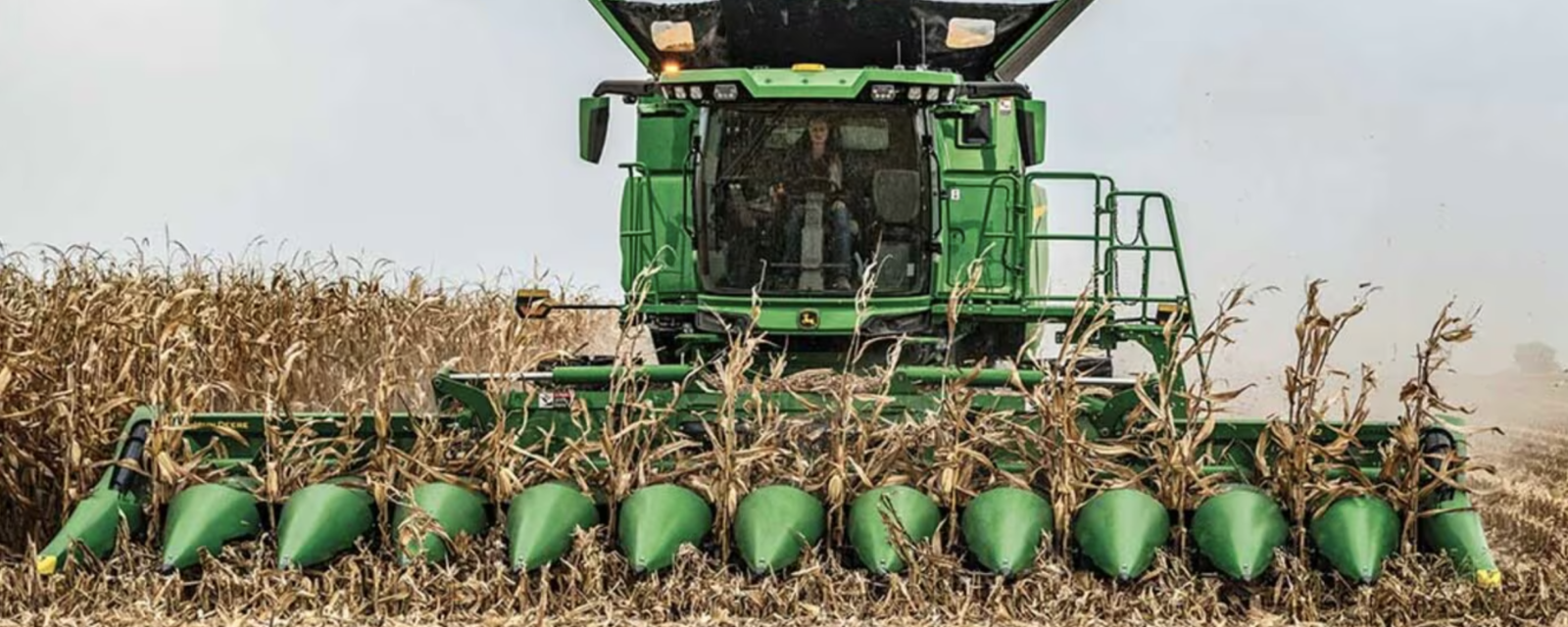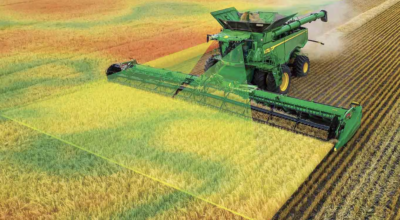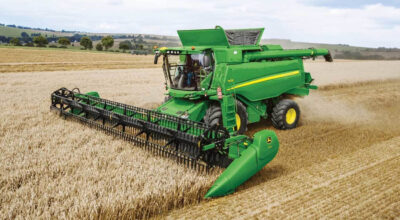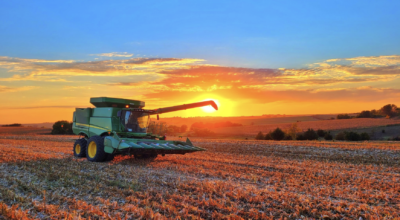As harvest season approaches, farmers are gearing up to reap the fruits of their labor. It’s an exciting time of year but it also comes with a unique set of challenges.
Harvesting is often a time-consuming and labor-intensive process, requiring careful planning and precise timing to ensure crops are collected at their peak quality. One of the key decisions farmers may face is how to maximize their yield while still keeping costs in check.
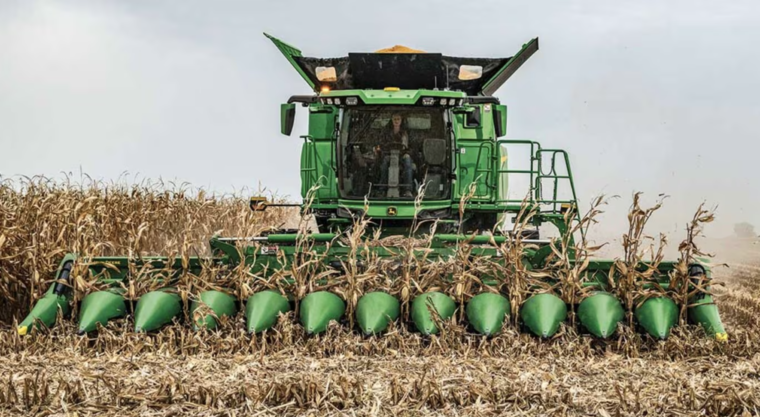
Crop producers have a choice to invest in equipment to carry out the harvest themselves or, in some cases, could hire a qualified contractor, like a custom harvester, to assist with the work so producers can dedicate time to other important farm tasks as well. This choice can be a challenging one, requiring research and planning in advance. Today, we’ll provide an overview of custom harvesting and explore some key considerations farmers should keep in mind.
What is Custom Harvesting?
Custom harvesting is a process in which farmers outsource harvesting to specialized operators, known as custom harvesters. These professionals provide their own harvesters and harvesting equipment.
Custom harvesting can be an attractive option for farmers who lack the necessary time or equipment fleet to manage the harvest on their own. Often, it is particularly helpful for larger farms, such as dairy farms, where managing multiple aspects of the operation simultaneously is crucial.
Typically, custom harvesters are independent contractors or employees of a harvesting company. They travel the U.S. almost year-round, migrating seasonally to harvest a variety of crops across regions. If custom harvesters establish a positive working relationship with a farmer, they may return to work on the same farm for many years.
In the U.S., many custom harvesters are part of the U.S. Custom Harvesters, Inc. (USCHI), founded in 1983 to connect farms, businesses, and government agencies. Members of the USCHI are expected to stay up-to-date on topics like safety and labor, equipment productivity, regulation issues, and new technologies.
How Does Custom Harvesting Work?
In a custom harvesting agreement, a farmer hires an operator who can provide the labor and equipment to carry out the harvest process, allowing farmers to maximize efficiency and productivity during the critical harvest season.
Some farms prefer to work with custom harvesters who can stay on-site for the entire harvesting season. In this case, the farm will provide the workers with meals and lodging. Other farms partner with a harvesting company that sends employees to different work sites each day.
Harvesting companies typically have a large fleet of machinery, like combines, tractors, and trucks to handle a wide range of crops and field conditions depending on the needs of a particular farm. For example, a grain harvester would utilize combines to pick corn and cut small grains such as barley, canola, or soybeans. A forage harvester, on the other hand, might use choppers, mowers, or swathers to harvest crops like triticale and alfalfa, which are often useful for dairy farms that need silage to feed livestock.
Custom harvesters may also handle additional tasks like transporting the harvested crops to storage facilities or markets.
Once the harvest is complete, the custom harvester will charge the farmer based on the acreage harvested or the amount of crop processed, with specific terms negotiated in advance. This flexibility allows farmers to choose the arrangement that best suits their needs and budget.
Key Considerations for Custom Harvesting
Custom harvesting can help farmers stay efficient, especially when managing and balancing other farm tasks. However, there are several key factors to consider before moving forward with custom harvesting.
Cost Factors
Opting for custom harvesting means that farmers do not pay an upfront cost to purchase machinery themselves. Instead, they pay for the service provided.
However, rates for custom harvesting can vary depending on several factors, such as the condition of the crop, the size of the field, and the efficiency of the operator.
For instance, a field that is particularly challenging to harvest due to uneven terrain may require more time and effort, resulting in higher costs. To more accurately assess the cost of custom harvesting, farmers can request quotes from multiple custom harvesters before selecting one to work with.
Availability and Scheduling
Custom harvesters are often in high demand during peak harvest seasons. Interested farmers should book services well in advance, since a harvest slated for too late in the season may impact crop quality and yield.
The availability of custom harvesters may also vary by location and region. For farmers, it can be useful to research local custom harvesting options before deciding whether to partner with a custom harvester or purchase their own equipment. This proactive approach can help to ensure you have resources in place when it comes time to bring in the crop.
Quality Control
While custom harvesters are professionals with specialized equipment, they may not be as familiar with a particular farm’s fields and crops as the farmer is. With this in mind, farmers should communicate their expectations clearly and work closely with the custom harvester to ensure that the harvest meets their standards.
For instance, discussing the ideal timing for the harvest or specific handling techniques can help align expectations. That way, you’ll get the maximum reward for the time and effort you invested in planting and maintaining your crops throughout the year.
Guiding Your Harvesting Venture
Custom harvesting can be an effective solution for modern farmers looking to optimize their operations. However, knowing the intricacies of the process, including cost factors, availability, and quality control, is essential to making an informed decision.
John Deere understands the importance of having the right tools and resources for a successful harvest. Whether you’re considering custom harvesting for the first time or looking to upgrade your equipment, our extensive selection of high-quality machinery can help you find the right solutions for your needs.
Start by exploring our full range of equipment offerings, and contact your local John Deere dealer today!
